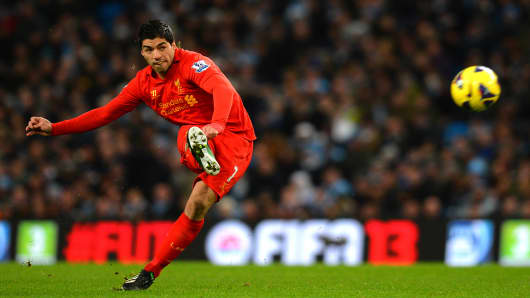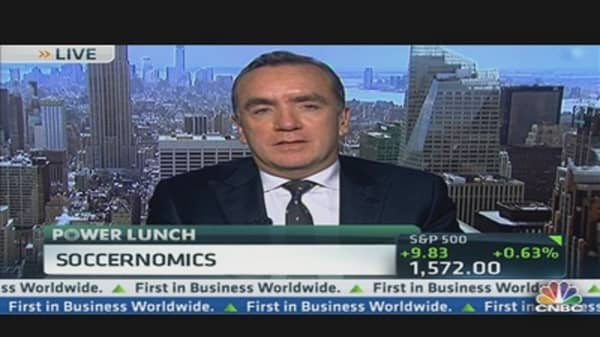U.K.'s Liverpool Football Club may not be enjoying the success it has become accustomed to but Ian Ayre, the club's managing director told CNBC that U.S. owners Fenway Sports respect the club's history and are in it to invest for the long term.
"We've had fantastic support from our investors, from our owners," he told CNBC Tuesday.
(Read More: Next to Try and Sell Soccer in America: Lionel Messi)
"I think the most important thing is understanding the heart of the brand, if you like, the important elements of this franchise or football club, and what we have seen is owners who are respectful of that. That's very important."
The English premier league club, with its 121-year history, is one of the most famous in the world and generated huge success across European competitions in the 1970s and 1980s. But the club has slipped down the league tables in recent years. It also failed to qualify for Europe's top Champions League competition last season and is unlikely to qualify again in the current season. As a result, Liverpool has fallen down the table of European clubs in terms of revenue, according to audit firm Deloitte.
Liverpool's current owners Fenway Sports Group also own Major League Baseball's Boston Red Sox franchise. The company took control of Liverpool F.C. after unpopular owners George Gillett and Tom Hicks were ousted from the helm in 2010.
(Read More: Rangers FC—The Best Investment in Soccer?)
"If you have something that's 100 years-plus old globally recognized, then you need to treat it with respect. And we get that respect and the right level of support, and are here for the long term and investing in the long term," Ayre said.
Principal owner John Henry and Fenway Sports have become known as advocates of "moneyball" - a term originally coined for the successful strategy adopted by the baseball team, the Oakland Athletics. "Moneyball", the subject of a book and a Hollywood film, refers to the use of player statistics to be shrewd in the transfer market without paying over inflated wages.
The Boston Red Sox may have adopted the same mentally but it seemed the new owners didn't initially transfer the same strategy to Liverpool. Damien Comolli, the club's director of football, bought two new players in 2010 for over 70 million pounds ($105 million) which turned more than a few supporter's heads. Several more low-key signings followed before Comolli left by mutual consent.





